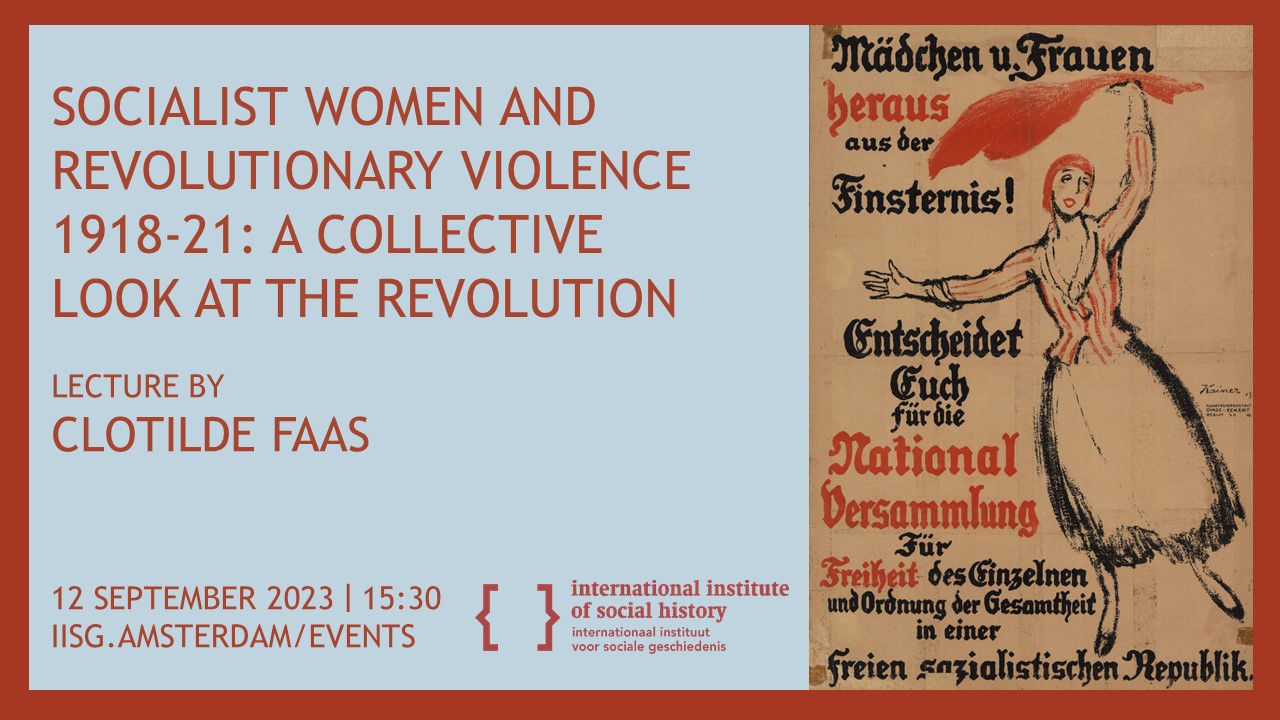Socialist Women and Revolutionary Violence 1918-21: A collective look at the revolution
At the end of the First World War, the demonstrations intensified. Often led by women, processions set off from working-class neighborhoods and marched into the city center to protest food shortages.
In October 1918, sailors stationed in the ports of Kiel and Wilhelmshaven mutinied and were soon joined by the local population, allowing the movement to spread rapidly throughout the country. Workers' and soldiers' councils were quickly set up in every town and countryside. On 9 November 1918, the empire collapsed, and the Social Democrat Phillip Scheidemann proclaimed the foundation of the first German Republic, the future Weimar Republic. Hitherto peaceful, the German revolution became increasingly violent from 1919 onwards, with several general strikes and attempted putsches by Communist men and women unhappy with the new Socialist government that had taken power following the Kaiser's abdication.
Violence is an integral part of women's revolutionary experience, whether women commit it or are subjected to it. However, the studies published to date fail to consider women as revolutionary actresses in their own right, whose violence is an expression of their own political and emancipatory will. The sexual violence to which women were subjected during and after the fighting of January and March 1919 also remains absent from historiography, even though it was a central aspect of the counter-revolutionary movement, which aimed to re-establish the traditional political, social, and sexual order that the revolutionary women transgressed. Clotilde Faas aims to discuss these aspects further during her lecture.
Clotilde Faas is a PhD Candidate at the University of Neuchâtel, Switzerland. She studies women in the German Revolution of 1918/19 from the perspective of gender, emotions and everyday life.



